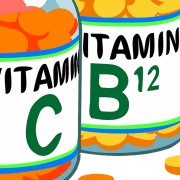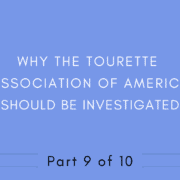Reducing Tics: Diet Not Always the Only Answer
The following article is a response by Dr. Marshall Mandell to a parent who, after three weeks, had discontinued a diet change for her son. She explained that an integrative physician had recommended the diet, and while vocal tics were reduced, body tics had increased. The family then dropped the diet and pursued a different treatment approach. Dr. Mandell shared this advice in 2002.
Marshall Mandell, MD: I must comment on the incomplete report from the parent of the 12-year-old boy whose TS tics significantly increased and decreased on a “very restricted” (unspecified) diet. Unfortunately, the parent(s), and perhaps the physician, failed to recognize the diagnostically important clinical clues in the child’s overall response to the diet.
Knowledgeable application of this information would probably have led to further improvement since it is highly likely, as pointed out by the editor, “the items remaining on the diet were triggers for the TS symptoms.” It is possible some offending food (s) were ingested more frequently than usual on this restricted diet, and this increased dose of dietary culprits increased the intensity and/or frequency of the body tics they evoked.
I would suggest that the family’s decision to switch to homeopathy may have been premature, though I look forward to learning if they obtain positive results. Also, dietary factors are often a major contributing factor in TS, but not the sole cause. There are individuals with TS for whom dietary management must be incorporated into a comprehensive program that includes other environmental factors that negatively affect the neuromuscular functioning of many who suffer from TS. As an environmental physician, I have studied over 70 cases of TS and found a significant link between a number of allergic reactions and TS symptoms.
Biologically active chemical agents that are ingested or inhaled should be eliminated, avoided, or contacted less frequently, depending on the degree of chemical sensitivity of the individual. Allergic and allergy-like neuromuscular sensitivity to airborne allergens, like dust, dust mites, and other insects, pets (saliva and dander), molds, tree, grass, and weed pollens, must be diagnosed and treated as necessary.
Conventional treatment only suppresses symptoms. In many cases it is possible to identify and then eliminate or avoid the triggering factors in reversible physical and mental-emotional-behavioral disorders. Physicians and families should ask themselves: Why direct efforts toward blocking the symptoms when it is possible to avoid the cause of the symptoms?









